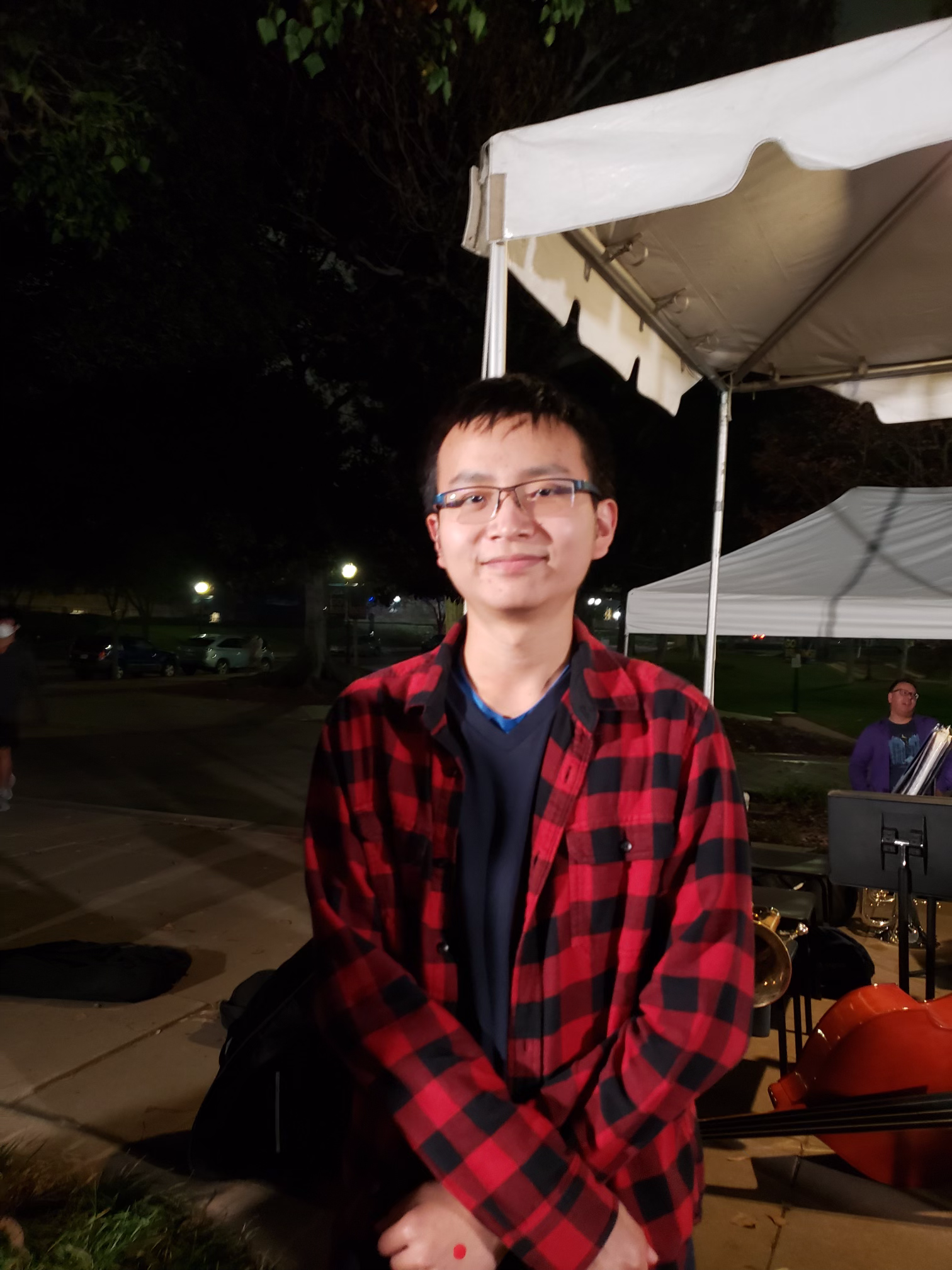Country Day students, freshman Paige Graham, and seniors Brian Chow, Kenyatta Dumisani and Carter Joost participated in an Octagon political roundtable on Feb. 17, featuring current events ranging from COVID-19 to abortion. Both Chow and Graham align with the Socialist party, while Dumisani aligns with the Democratic party. Joost is unaffiliated with any party. A complete record of the conversation will be posted online.
Q: Is it valid for people to make the claim that the COVID-19 vaccine is unsafe?
Chow: Yes, definitely. I especially thought of this when I first heard that the vaccine was ready to be administered. When people asked me if I would take the vaccine during its first phase, I said, “no,” I wanted to wait. When a new drug is tested, there are side effects, especially with one that was so rushed. It usually takes several years for a vaccine to be approved by the FDA, but this one got approved in less than a single year. Because they were in such a rush to get this out, I always think they might have overlooked something, which is worrisome. Also, from personal experience, my dad got the Moderna vaccine, and he said it was pretty bad. He couldn’t sleep for a few days after the second dose due to the side effects. In the long run, it’s probably safe, but I do understand why people will say that.
Joost: It appears to protect against the coronavirus, so that is good. At least the ones that have been sent out are, but there are definitely side effects. My dad got his first dose. He is 72, and he’s been down and out for a couple of days. There’s no way of knowing at this point, as just a general citizen, what’s safe and what isn’t. It’s very difficult for people to find the correct data. The only way to find out if it is safe is to either take it or just wait 10 years and see what happens. It’s probably better to take it than not take it because the coronavirus is an immediate threat.
Graham: I believe that it’s good for people to take the vaccine. I understand why people would be hesitant to take it, seeing as there are side effects, but we can’t wait any longer, letting the virus spread more. Cases continue to go up, so we need to have the vaccine widespread. Overall, I do think it’s better to take it versus not taking it at all because the side effects can be overcome.
Dumisani: I agree with everyone who’s spoken before because I believe it’s beneficial to take the vaccine. I don’t think enough has been done to aid the concerns people have with the development rate of the vaccine. More time needs to be spent informing the public on what it’s going to do, why this is happening and how it will benefit them. I know some of my family members are wary of taking it because of that lack of background information. I think that’s present for a lot of the members of my community. I think the extra effort needs to be made before I’m comfortable taking it, as well as a wide variety of Americans are comfortable with taking this vaccine.
Chow: I agree with Paige and Carter that it is a good idea for people who can get the vaccine to take it because it will help with the group’s effort toward stopping the virus. On the other hand, though, there should be more education put out in the forums because the vaccine is pretty unique. It is an mRNA vaccine unlike most, such as the influenza vaccine. This basically just means that it gets your body to make antibodies itself, instead of injecting a dead strain of the virus. So, I think people will be more worried. A lot of people hear mRNA, and they’re like, what is mRNA? Most people who took high school biology most likely forgot all of it. I’m in AP Biology right now, but give me 20 or 30 years, and I will probably forget this stuff, too.
Joost: There is a big difference between caution and willful ignorance, so I don’t think it’s fair to ask whether or not someone’s concerned about injecting themselves. It’s pretty much always valid to have concerns unless someone is willingly not taking steps to find out information. It’s difficult to find the information necessary to have an informed opinion on whether or not it is safe. Most people can’t really look to the science for that or the trials because they don’t know how the trials are run or how they should be run to be as effective as possible. It’s the lack of accessibility of information that I think causes issues. So yes, of course, it’s valid.
Graham: It’s a valid concern to be worried about what we’re injecting into our bodies. For example, my nana and papa both took the vaccine, and my papa had side effects afterward. I was very concerned for him, but he’s doing great now, and I know the vaccine has helped them feel more comfortable with coming to see us because we haven’t seen them much in a year.
Q: With the context that President Biden recently signed an executive order revoking the Mexico City Policy, are you pro-choice or pro-life? And why? (The Mexico City Policy banned the U.S. from funding foreign organizations that support or perform abortions.)
Joost: Abortion is just distasteful. There’s really no way around it; it just sucks. Even with that, I’m pro-choice. It’s just more practical to make abortion legal. If abortion is illegal, then people will perform unsafe abortions, which is very problematic. I don’t think it’s immoral because we already decide when someone is considered worthy of life. Three hundred years ago, you weren’t really counted as a real person until age 10 because of the likeliness that you would die. Now, once you’re born, you’re pretty much set for a while, at least in the United States, and it’s been like that for a while. The whole concept of early childhood is pretty modern. If you move back when rights should be given a little further, such as before conception, you could also make the argument that by abstaining you are preventing life. The only real difference between a young baby and a fetus is if it’s experienced things or not. It’s just up to society to decide what is most practical and what determines if life is a life. Overall, it should be allowed because it’s simpler.
Graham: I believe that we should repeal the order that bans the U.S. from funding other nations’ abortion clinics. Certain places can’t fund these clinics, and I believe we should provide the option to as many people as possible. If a teen mom just isn’t ready, we shouldn’t put that upon them. Also, if you are a 17-year-old person having a child, you may not physically be ready for that since your body’s not done developing. So yes, I am also pro-choice, and I do believe that women should have the right to abortion.
Chow: I agree with Paige and Carter. I think it was a good thing that the policy was repealed because we should give funding to these organizations. As Paige said, many countries have an extremely high cost of living; even the U.S. has this issue. So if you’re a pregnant woman, odds are you will be forced to live paycheck by paycheck. I think having equal access to abortion is really important and could help that problem. Otherwise, having that child, as Paige said, would really just be an added burden. I am pro-choice because I think it should be the family’s decision if there should be an abortion. Most importantly, it’s the mother’s personal choice. The government’s purpose is to serve the public so if the government can offer something that people want they should. If the option wasn’t there, the government would be doing the public a disservice. There are so many factors that go into why someone becomes pregnant, and why someone may want to terminate the pregnancy. The government should give the public that option. That should also include foreign countries. I feel the same way about this as I do health care. Everyone should have free access to it.
Dumisani: I am pro-choice. I do believe that it should be the woman’s choice to be pregnant or terminate the pregnancy. I both agree and disagree with the Mexico City Policy. If we have the resources to, we should extend the luxuries that we have domestically abroad. Now, we shouldn’t impose any ideals on other countries. We’re here to inspire, not enforce. On the other hand, the source of this funding that we’re sending abroad should probably be reapportioned to address the issues that we have in our own communities locally.
Joost: I don’t think that foreign non-government organizations should receive funding for abortions. To say we’re not going to fund an organization because they perform abortions is ridiculous, but the amount of money that gets appropriated for abortions, frankly, could be used in a lot of other places. If a foreign country needs to get involved to perform abortions, there are probably a lot more pressing issues within the country receiving that aid. That money is better spent doing more necessary medical procedures. However, it is hard to regulate what NGOs do without creating more trouble than it’s worth. If possible, funding abortions internationally should be discouraged, but trying to ensure government funding does not fund foreign abortions creates a lot of unnecessary bureaucracy.
Graham: I disagree with Carter. I do believe that we should fund them. If we don’t help fund countries that may not be able to support these clinics themselves, then their poverty line will most likely be raised. Also, these children born into poverty will be malnourished and possibly abused by their parents. I definitely think that we should fund it because we need to help them. I definitely agree with Kenyatta that we shouldn’t force it upon other countries, but if the country is open to abortion, I definitely think we should help them.
Joost: There are better ways to curtail population growth in other countries, most notably encouraging contraceptive use. That’s considerably cheaper than promoting abortion. Abortion is the epitome of the last resort and is a pretty expensive procedure. There are better ways to go about reducing population explosion. A good example of government funded medicine gone wrong, is in a lot of Native American communities during the middle of the 20th century. Many doctors set up women’s clinics and, without asking, would tie their tubes. This results in a lot of suspicions and worries surrounding these foreign government-funded clinics in other countries. Abortions could also help discredit NGOs in a lot of areas which would cause a lot more trouble than it’s worth.
Graham: I understand what you’re saying Carter, but what if people are using contraceptives and still get pregnant? Contraceptives don’t always work. Even if it’s a small population of the public, why should we make treatment unattainable? What if the person is raped? And the person just doesn’t use a condom? Why should they have to have a child that is from their rapist? I don’t see how that’s fair, especially if they don’t want the child. It doesn’t make sense for a 15-year-old who was assaulted to have to have the baby. If she doesn’t want the child, she should have the option to be able to get rid of the child. I understand that it’s expensive, but I still think that it’s better than the child living a terrible life.
Chow: I agree with Paige. There are so many instances where pregnancy is unwanted. For example, in the case where the pregnancy isn’t wanted, like a victim of rape, then if abortion isn’t an option, what happens? What happens to the child? What happens to the mother? If the option of terminating the pregnancy is there, and if it is available because of the U.S. government funding foreign organizations, it will be better for the country in the long run. This is all done for the well-being of the mother, and just having that choice is important.
Joost: The problem with this conversation is that we are a world away from these NGOs, and it’s difficult to make decisions about them. On a larger scale, it’s not really worth it because that money could be just better spent. There are other ways to help more people. I mean, yeah, it’s not fair, but you can only help so much with so much money.
Graham: Couldn’t we help prevent spending more money on things like food stamps by allowing abortion? I know that in the United States, the foster program is very messed up. There are a lot of families who just want the money and are bad foster parents. So, if the mom continues the pregnancy but doesn’t want to keep the child, they have to put it up for adoption. Then if the child isn’t adopted, they are put in the foster care system, which is not a good system. There are definitely some good families, but if there are more good than bad is definitely in question. Also, we can’t just take away the bad families because then there won’t be enough housing for all the children. If money could go to getting a woman’s abortions then children wouldn’t be forced into these situations.
Joost: I guess there’s only actually one way to settle this, and that’s to look up what different things actually cost, and that I’m sure varies region by region. And, frankly, so should this policy.
— By Dylan Margolis
Originally published in the March 9 edition of the Octagon.





This was a very interesting discussion, and I enjoyed reading students’ honest views on these issues. I am no expert on vaccines, but I wanted to point out a couple of items. First, not all the vaccines use mRNA technology; the Johnson and Johnson and AstraZeneca are more “traditional” vaccines, as far as I know.
Also, while it is true that the approval process was faster than normal, “researchers were not starting from scratch when they learned about SARS-CoV-2, the virus that causes COVID-19. SARS-CoV-2 is a member of the coronavirus family. […] Scientists have been studying coronaviruses for over 50 years. This meant scientists had existing data on the structure, genome, and life cycle of this type of virus.”
Source: https://www.medicalnewstoday.com/articles/how-did-we-develop-a-covid-19-vaccine-so-quickly#Other-coronaviruses